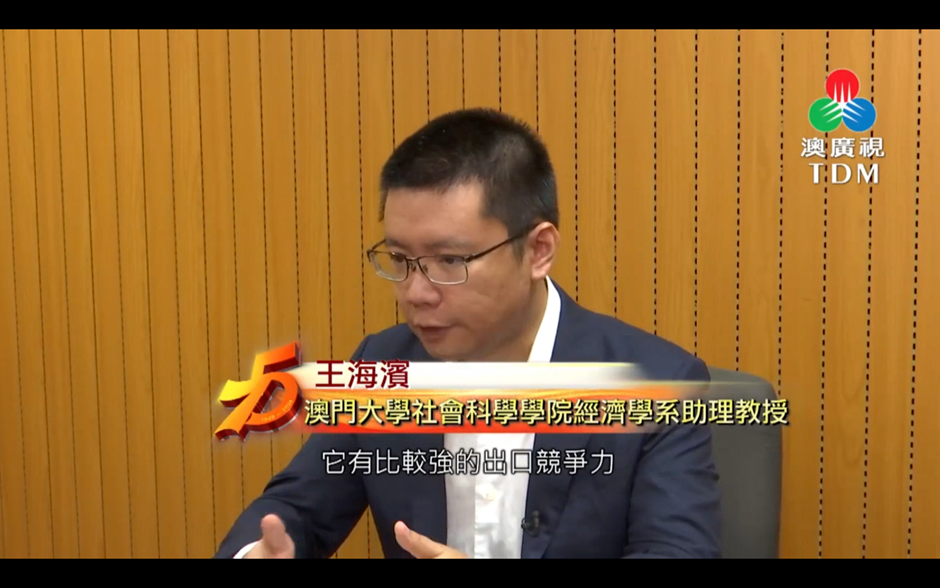
Prof. Hoipang Wong
In a recent interview with the special programme of TDM: “揚帆新征程” for celebrating the 75th Anniversary of the Founding of the People’s Republic of China, Prof. Hoipang WONG, Assistant Professor of the Department of Economics of the Faculty of Social Sciences of the University of Macau, shared his thoughts on China’s economic development and the internationalisation of the Renminbi (RMB).
Prof. Wong believes that China’s economy as a whole has shown greater resilience and stability. Although last year’s negative growth in China’s domestic exports and the downturn in the property market, which affected domestic demand and exacerbated the risk of local government debt, have all contributed to a lower economic growth rate, the Central Government has proactively launched a number of countermeasures, including 1) the policy of trade-in of consumer durables to boost domestic demand; 2) the policy of large-scale equipment replacement, which has led to a significant increase in the manufacturing sector; 3) the promotion of the three major projects of real estate infrastructure investment, i.e., subsidised housing, urban village renovation, and dual-use infrastructure, which has resulted in an investment of up to RMB1.2 trillion this year; 4) the vigorous introduction of targeted policies, which has led to the increase in the recent activity of the property market; 5) A series of policies such as the issuance of special national bonds to resolve the debt risks of local governments, etc. These measures have all been effectively improving.
Prof. Wong also believes that the export of the ‘new three’ industries, including electric vehicles, li-ion battery and solar cells, will continue to grow. Coupled with the huge growth potential of high-tech industries such as shipping and industrial robots, it is believed that as long as enterprises continue to accumulate independent technological innovations, they will be able to hedge against the risks brought about by trade protectionism. In addition, the Central Government has been actively pursuing more international markets, including countries along the Belt and Road, ASEAN, RCEP member states, and other emerging markets. With the diversification of overseas markets and the discovery of “new quality productive forces”, it is believed that the Central Government will be able to turn challenges into opportunities.
Prof. Wong concluded by saying that in order to promote the further circulation of RMB in the international arena, it is possible to expand and deepen regional co-operation with emerging economies in the areas of economy, trade and finance, including the Belt and Road, BRICS, Central Asia and South America, etc. It is hoped that the internationalisation of the RMB will go even further in the future, and that it will become a universal reserve currency. Wong also praised the implementation of digital Yuan, which has the advantages of being safer, more convenient and cheaper. Digital Yuan can better meet the needs of economic activities and open up new avenues for RMB internationalisation.
For details: https://bit.ly/4cfEvmV
Source: Faculty of Social Sciences, University of Macau

